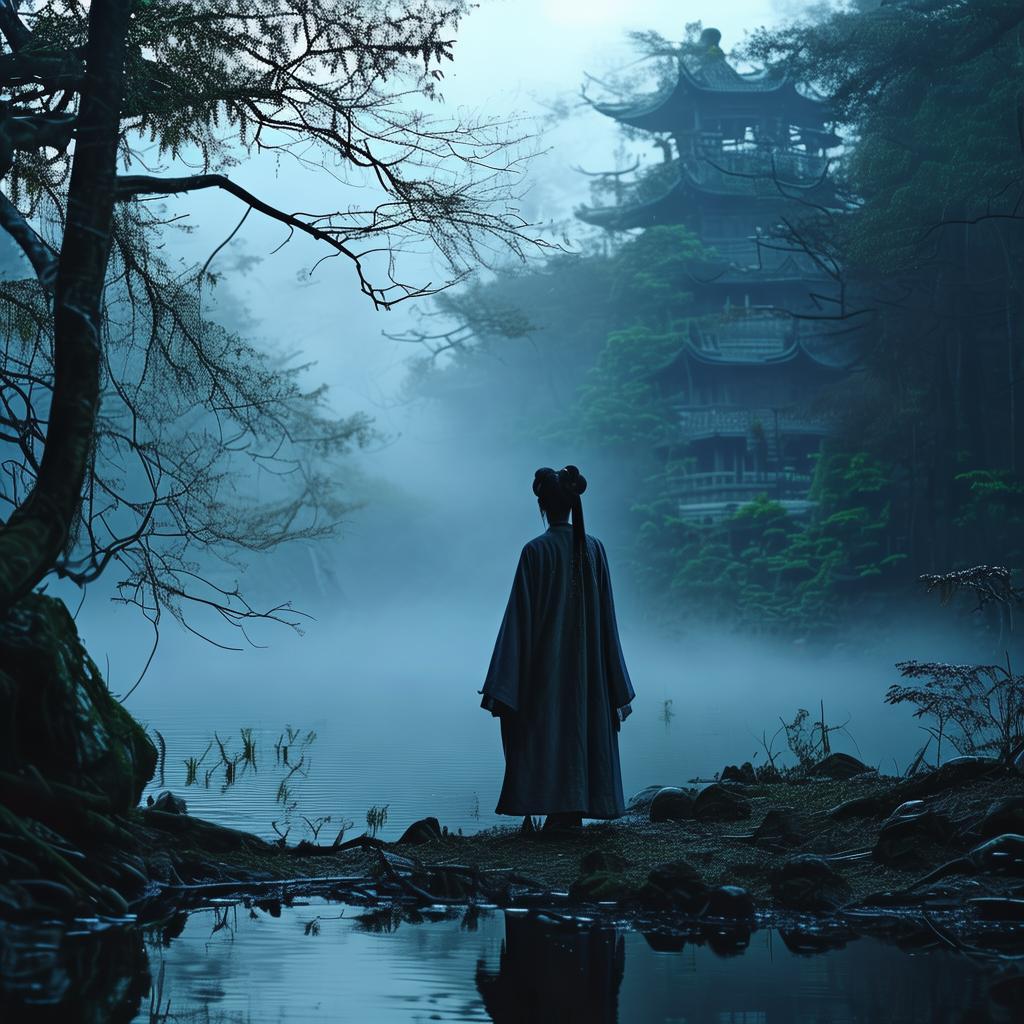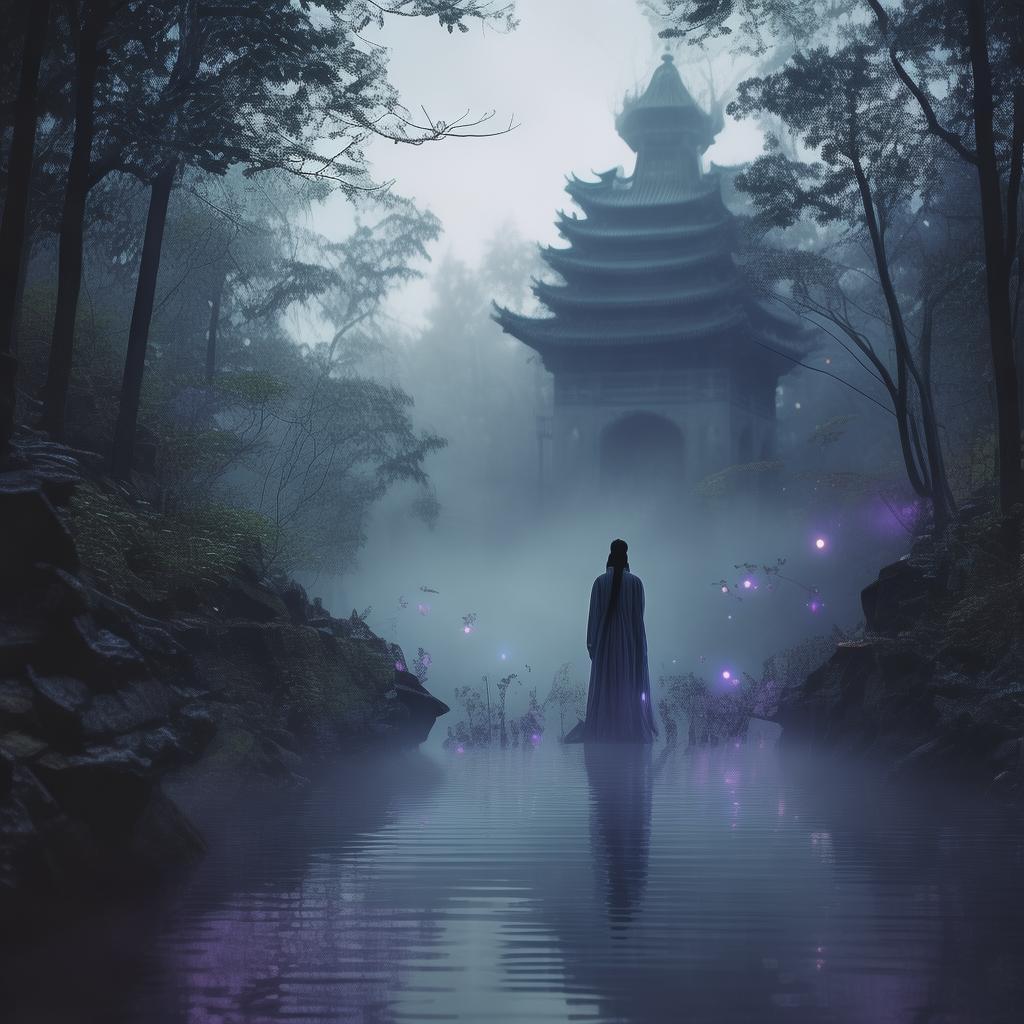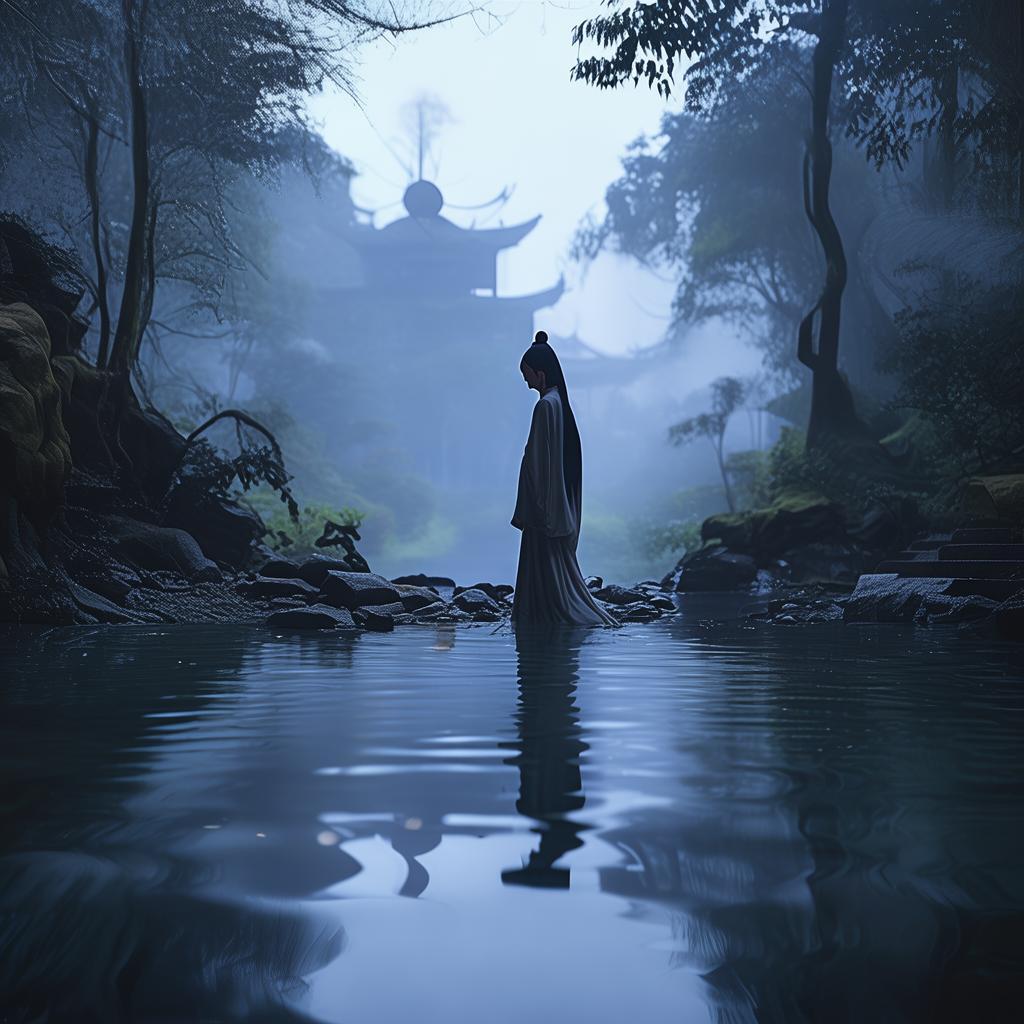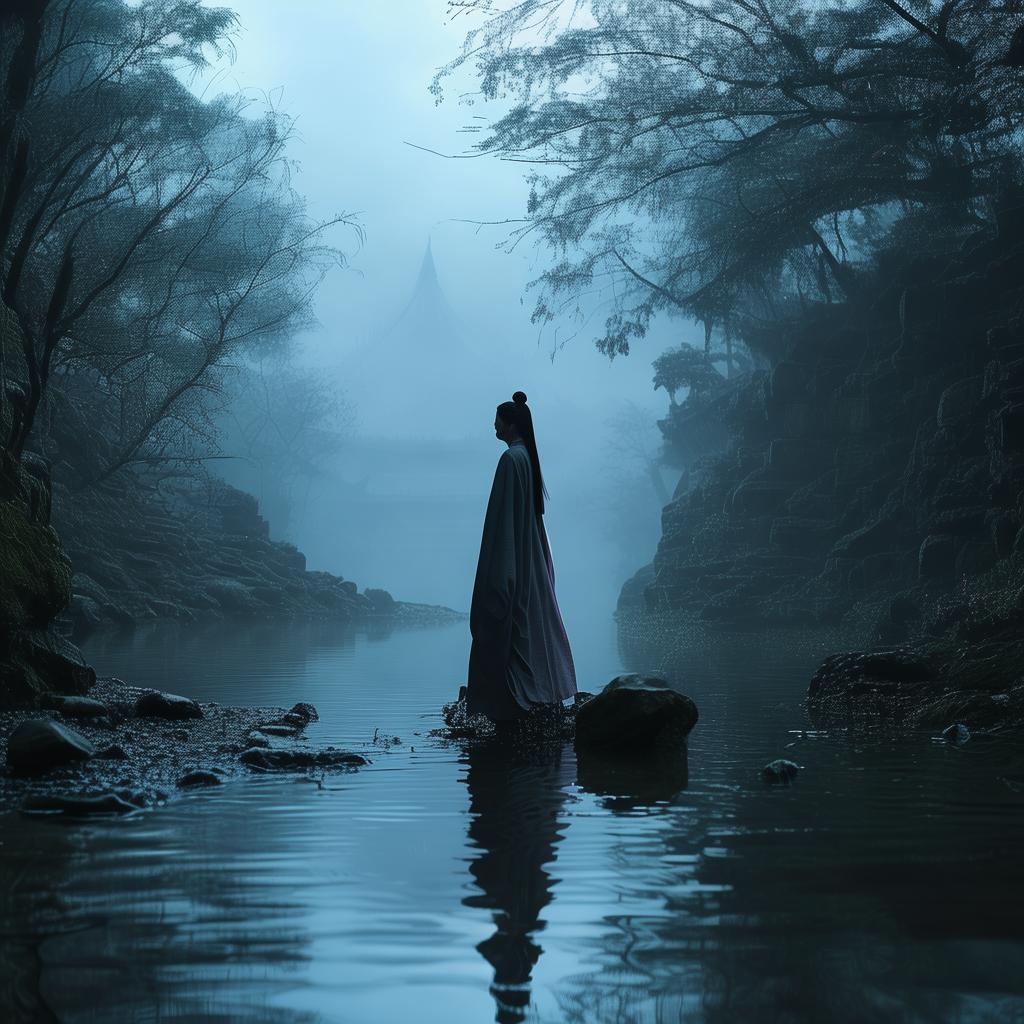Whispers of the Past: The Chatuizhai's Conundrum
In the bustling city of Shanghai, amidst the towering skyscrapers and the relentless hum of the urban jungle, there was a man named Li. A historian by trade, Li's life was one of quiet contemplation and scholarly pursuits. One fateful night, while researching an obscure reference to an ancient Chinese wonderland, he stumbled upon a peculiar artifact—a small, ornate box that seemed to pulse with an ancient energy.
The box was adorned with intricate carvings, depicting scenes of ancient Chinese architecture and mysterious symbols. Intrigued, Li found himself unable to resist the urge to open it. As the lid creaked open, a dazzling light enveloped him, and he was hurled through a vortex of time and space.
When he opened his eyes, he found himself in the heart of the Chatuizhai, a legendary Chinese wonderland said to be hidden in the mists of time. Towering pagodas, serene lakes, and winding paths lay before him, all bathed in a golden light. It was a place of beauty and enchantment, yet something felt off—there was an undercurrent of deception that made the wonderland feel more like a mirage than a reality.
Li met a guide named Hong, a wise old man who claimed to be a guardian of the Chatuizhai. Hong explained that the wonderland was a creation of the ancient Chinese, a place where the line between the real and the fake was blurred. The Chatuizhai was a repository of the country's history, but not all of what was there was genuine. Some wonders were illusions, designed to mislead and confuse.
Li was given a task: to find the true heart of the Chatuizhai and uncover the mysteries that lay within. As he ventured deeper into the wonderland, he encountered various wonders, each more perplexing than the last. Some seemed to come to life, while others were mere figments of the imagination.
Among the wonders was the Whispering Pavilion, a place where voices from the past would echo through the air. Li listened to the stories of the ancient Chinese, their laughter, their cries, their triumphs, and their sorrows. Each voice was a piece of the puzzle, a clue to the heart of the Chatuizhai.
Hong warned him that some wonders were not as they seemed. In the case of the Whispering Pavilion, the voices were not real—instead, they were the echoes of Li's own thoughts. This revelation shook Li to his core, making him question the very nature of reality.
He continued his journey, encountering a dancing peony that was as real as it was ethereal, a singing river that seemed to tell stories of love and loss, and a mirror that reflected the faces of those who had long since passed away. Each wonder was a layer of the Chatuizhai, and Li felt himself being drawn into a deeper understanding of the world and his place in it.
As Li approached the heart of the Chatuizhai, he was confronted by a guardian, a figure who appeared to be made of stone and wood, its eyes reflecting the light of a thousand suns. The guardian spoke to Li, its voice resonating with the wisdom of ages. It revealed that the true power of the Chatuizhai lay not in the wonders themselves, but in the knowledge and understanding that they represented.
Li realized that the Chatuizhai was a reflection of the human condition, a place where the line between illusion and reality was as thin as the paper that separates the real world from the dream. He understood that the heart of the Chatuizhai was within him, in his own heart and mind.

With this knowledge, Li made his way back to the box that had brought him to the Chatuizhai. As he closed the lid, the light once again enveloped him, and he was pulled back through the vortex of time and space.
When he opened his eyes, he was back in Shanghai, sitting at his desk surrounded by books and notes. He looked down at the box, now devoid of its ancient energy, and realized that the journey he had taken was not just a physical one, but a journey of the soul.
Li's life was forever changed. He saw the world with new eyes, understanding that the line between reality and illusion was not as clear-cut as he had once thought. He became a guardian of knowledge, a protector of the truth, and a bridge between the past and the future.
The Chatuizhai's Conundrum had taught him that the real wonders of life were not found in the material world, but in the depths of the human heart. And as he looked out at the city, he knew that the wonders of the past were still very much alive, waiting to be discovered by those who dared to look beyond the surface.
✨ Original Statement ✨
All articles published on this website (including but not limited to text, images, videos, and other content) are original or authorized for reposting and are protected by relevant laws. Without the explicit written permission of this website, no individual or organization may copy, modify, repost, or use the content for commercial purposes.
If you need to quote or cooperate, please contact this site for authorization. We reserve the right to pursue legal responsibility for any unauthorized use.
Hereby declared.









